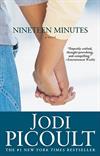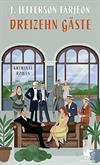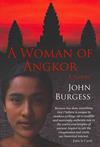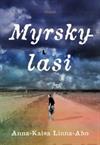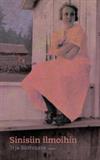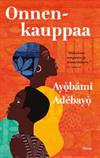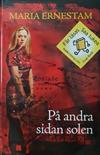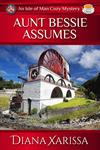
A Storm of Swords: Part 1 Steel and Snow (A Song of Ice and Fire, Book 3)
1 journaler for this copy...
Bought last week and finished today. Seeing how the book is apparently split into two parts (for whatever reason), I decided to buy both of them at once. That means that for once I could jump right into the next book, and I absolutely want to. However, I also prefer writing a review for one book before starting the next one. It doesn't usually matter, but sometimes I like to do predictions.
I got two seemingly contradictory impressions from this book: a) that not much actually happened, and b) that each chapter was nonetheless exciting and extremely rewarding. I usually read 4-5 chapters in the evening, and then spent the next day trying to figure out where things were heading and what might happen next.
Looking back, the previous two books also had large parts mainly consisting of people travelling from A to B and/or talking to other people (often revealing backstory or plans), both of which provide plenty of world building, with only a few major events that shaped the entire book. This book didn't even have any such major event but is leading up to a few of them. I wonder whether, if I hadn't known about the Red Wedding already, I might have considered some parts of the book boring. As it stands, all the little things leading up to it are filling me with dread, so that I simultaneously was looking forward to every new chapter involving the characters and dreading inching ever closer to the upcoming catastrophe.
In fact, I tend to think this has been the best book so far, maybe because things were less hectic or because of the undercurrent of approaching danger or possibly because Martin managed both at the same time.
As before I've opted to comment on events as they pertain to each character. Spoilers have been coloured white and can be made readable by selecting the text with mouse or cursor.
Arya
Nothing much happened on Arya's account. The biggest twist was that when she finally revealed herself (to a man she knew from Winterfell), he turned out to have a different allegiance (though not an enemy). The detour to Dondarrion was interesting, though. I already knew that the Hound would face a trial by combat against a foe wielding a sword of fire (though I thought it would be Thoros) and that he would win. What surprised me was that Dondarrion once again survived. Now I wonder whether Thoros (and Melisandre) have a point and the Lord of Light is planning something with his followers.
I also have no idea what the Hound's future impact on the plot will be. I had forgotten he fled King's Landing at the end of the last book or I might have wondered then. At the time, having him face retribution for his crimes would have been an acceptable answer. Now that that's happened and Arya herself had a chance to attack him (but couldn't bring herself to do it), why did Martin keep him alive? I wonder whether the reason might be related to Sansa.
I greatly appreciated the trial and in particular how Clegane dealt with the accusations because I do feel there's a difference between killing other soldiers while participating in a war and actual war crimes. Mycah's murder actually is the only time we witnessed the Hound killing anyone in cold blood and even then he not only did so on the crown prince's orders but fully believed his lord's accounts. He also rightfully points out that he's not his brother and shouldn't be held accountable for his fellow knights' crimes. I'm always in favour of stories showcasing the many shades that exist between black and white and I didn't expect such a strong display of the humanity behind both good and evil acts (and anything inbetween) in this series, of all places.
I believe that this time Arya will actually reach Riverrun, though of course the pressing question is whether this will happen before or after Edmure's wedding. *crossing fingers*
Bran
With Bran likewise, at least on the surface, nothing really happened. I really appreciated the story Meera and Jojen told him because it provides some backstory on things that happened before the war. I am hoping they'll make a detour to Greywater Watch because I believe that Howland Reed might be the only person still alive to shed light on Jon's birth.
The biggest plot twist concerning Bran happened at the very end and not even in Bran's own chapter. I'm convinced that when Summer barged in to save Jon's life it was actually Bran taking over to protect his brother. Hopefully, that'll be cleared up early into the next book.
Catelyn
Here's where things get interesting, that is to say extremely dramatic. Catelyn was unwise to release Jaime like that. I understand why she did it (she didn't want to lose any more children) but expecting three people (only one of them a warrior) to make it to King's Landing without incident was highly naive. I realize I have the advantage of knowing what happens elsewhere long before the news reached Riverrun, but I still was disappointed when her immediate reaction to the news of Sansa's wedding was that Jaime and/or Tyrion must have broken their words.
I was deeply saddened to hear about Robb's marriage. I know just enough about the Red Wedding to react to these particular news with a veritable litany of "No, no, no, no, noooo!" interspersed with helpless moans of "Robb, you fool, you poor romantic fool!" Afterwards, I dreaded every return to Catelyn's POV, knowing that every single one of them would bring me closer to the apocalypse, as if not reading about it would delay the inevitable.
Right now, it looks to everyone like Catelyn made the bigger mistake but I know that it was Robb who sealed their death verdict ("you complete and utter fool"). My only hope is that Arya won't arrive in time to be a guest at the Twin Towers, though I suspect it'll be a close call either way. Robb's other siblings should be safe enough. At least, I strongly suspect that even if the Lannisters hear about the wedding plans, that Tyrion will have enough sense to smell the trap and refuse Sansa's pleas to be allowed to visit.
Daenerys
I knew that Daenerys would free a lot of slaves, so I had a pretty good idea what she was planning. It was still amazing and a scene I'd love to watch. I loved that Dany once again took a calculated risk, not only to reach her goal (she needs this army) but also to do the right thing. Faced with the necessity to perform one immoral act of two (slavery or trickery and murder), she followed her heart and chose the one that benefitted the innocent. Moreover, she listened to both of her advisors (Ser Jorah and Whitebeard) and managed to combine their completely contradictory counsel into something that increases both her combat power and her people's loyalty and (once it becomes known) her renown within the western world.
Lots of questions remain, though: I'm not sure whether all Unsullied will decide to join her (I suspect a lot of them will) and I'm also undecided on whether she'll take back the offered goods or leave them for the Astaporians. (Three ships aren't enough to transport this many people anyway.) I also wonder whether this feat is enough to buy her Whitebeard's loyalty, and like Ser Jorah I wonder who Belwas and Whitebeard really are.
I had expected news of her dragons to have reached by Westeros by now but in the only mention, the message got so garbled ("a three-headed dragon has hatched in the east") to be discarded as sailor's talk. This time, I suspect the rumours are more likely to revolve around three actual dragons and an army of Unsullied having overthrown Astapor. This threat to King Joffrey's rule will likely result in further assassination attempts.
Davos
I was surprised but gratified to learn that Davos had survived the Blackwater inferno. I took a liking to him in this first chapter. No comparison with any of the others, but at least I feel like I know him well enough to care by now. Like Davos, I don't know what the Red Woman is planning to do with him.
I still think that Melisandre's committing vile and evil acts (she's clearly planning to kill young Edric), but I do have a much more positive outlook on her Lord of Light now. It looks like his followers might be the only allies in the fight against the Others the Night's Watch might have for the time being. Interestingly, the vision/prophecy Melisandre had might easily also refer to Dondarrion (flaming sword) or Daenerys (waking dragons from stone) as Stannis. It might even refer to all three of them...
Jaime
I was surprised to see Jaime as a POV character and even more astonished to find myself actually taking a liking to him. His behaviour towards Brienne was uncouth and misogynistic, but somehow he was charming (and even more surprisingly, honorable) enough to make up for it. Getting all that backstory about his youth and servitude in the Kingsguard certainly helped. I mustn't forgot he attempted to kill a seven-year-old boy and he never even claimed to feel guilty about it. And yet... he really does love Cersei and he was trying to protect her and their children. He absolutely was wrong to try to kill a defenseless child, but I understand what made him do it. He's cruel and narcissistic but he's not a complete monster. Things are even more complicated when it comes to his well-earned title as Kingslayer. I had gleaned enough to understand that people's singleminded judgement was severely unfair, but I was ever so gratified to learn the full story (and I do believe every word of it). The loss of his hand provides further ground for Jaime's development. Not only does he need to overcome this handicap somehow (there are plenty of maimed characters in the books, so it's not like this is a singular occurence) but it also sends him into a crisis of identity. Like he said, if the hand that killed Aerys is gone, what does that make him now?
I hope we'll get more chapters from Jaime's perspective in the future, but I suspect that once he'll return to King's Landing, we'll switch back to Tyrion's outside perspective.
Comparatively, Brienne's just not that interesting. Don't get me wrong: I sort of admire her tenacity and fighting prowess, but there are already plenty of other characters with these characteristics and the simple fact that she happens to be a woman isn't enough to make her stand apart. Arya already covers the trope of trying to pass for a boy and wanting to fight with the men, and from a first-person view, too.
Jon
I sort of expected Jon to hook up with Ygritte but I failed to consider that this would create yet another conflict of interest when it came for him to leave. Then again, I didn't expect him to cross the Wall in this book (or at all, with the wildlings) or the need to warn the Watch to be quite as urgent.
I'm worried that they might not believe him. After all, he's approaching from the wrong side, so they might brand him as a deserter on sight without ever speaking to him. I hope they have more sense but with Janos Slynt in command that seems less likely.
I also worry a bit about Ygritte. I basically see two outcomes, either she's killed (though hopefully her own act of defiance and the arrow she fired at Jon are enough to confince Styr that she isn't to blame for Jon's betrayal) or she's carrying his child. Either way, Jon will be upset when he (eventually) finds out.
Samwell
I was surprised to see Sam as a POV character, especially as I hadn't expect him to survive the wights' attack (which admittedly I also hadn't expected). Sam's an unlikely hero but he's got a good heart and I did wonder whether he'd find a way to spirit Gilly away from her father/husband. The dragonglass' power is an interesting reveal, which leads me to wonder whether Daenerys, when she eventually reaches Westeros, won't have to fight the Westerosian armies but the Others instead and win her subjects' hearts by freeing them from these undead terrors.
I felt that Sam's failure to send the messages he wrote, while somewhat understandable given the horror of the situation, still felt a tad too heavy-handed and more like a plot device than something any reasonable (if frightened) person would do. Writing the messages in advance was a good idea, but as a consequence the initial messages lacked any detail. Once he had the time and steady enough hands to write more messages, I would have expected him to send one more detailed missive mentioning the number and especially the nature of the attacking enemies. I get that he was too nervous to think of that (and was probably worried Commander Mormont would scold him for wasting any ravens). I'm not happy with that explanation, but I understand that. However, this oversight is what leads to the King's council dismissing the Watch's plea for more men and that's what makes it feel like a plot device. Though admittedly, I'm not entirely certain Tywin would not have made the same decision if he had known about the Others (or even have believed the message).
Sansa
I knew that Sansa would be married to Tyrion at some point, though I didn't expect it to happen quite so early. Once the subject of her gown was brought up, though, and especially with the seamstress hedging about the colour, cut and purpose of the dress, it immediately became clear to me that the time was at hand. I'm relieved that Sansa doesn't actually hate or fear Tyrion (he did defend her in the past, after all) and even more so that he respects her enough not to force her to consummate the marriage. However, as Joffrey made very clear, she might still end up being raped by her king. (While Sansa clearly needed that warning, I was well aware of that danger.) I hope that Tyrion will be able to protect her when that time comes.
I wonder whether Dontos was right and the Tyrells were only interested in her claim to Westerfell and the North, or if, conversely, they feel betrayed by her (apparent) decision to marry a Lannister rather than the Tyrell heir. I mistrust Dontos quite a bit and wonder whether he ever actually intended to rescue her (and if so, whether he might have had intended to marry her himself or to some other lord). He might even have been the one to blab about Sansa's plans to marry Willas Tyrell. That, or they were spied on during their conversation.
Tyrion
Surprisingly, apart from Tyrion's marriage, not much happened on that front in this book. I was relieved to learn that he had no intention to rape his young bride but I wonder a bit why he doesn't talk to her about the need to keep up appearances. He's already the laughing stock of the city but that bit at least could have been kept silent.
His final chapter is interesting. The Lannisters always are surprised if any other family shows any bit of cunning or even common sense. Clearly, Martell won't be as easy to manipulate as Tyrion had imagined and the enmity between the Tyrells and Martells is a great setup for the upcoming book. I don't know how things are going to play out but I hope that Sansa'll take a more active role. She kept her cool during the attack on King's Landing, after all. A similar display of tact and composure could greatly help to smooth the waters.
The big theme for this book in my opinion, is honour or, to be more precise, the conflicts that arise when characters find themselves at a crossroad where neither option is completely right or completely wrong. They want to do the right thing but they have to make a choice, and then they have live with the consequences. Most of the characters face this particular kind of inner conflict in this book and, now that I think of it, that might be one of the reasons this book appealed to me so much.
For the reader, this theme raises important questions like: What's the difference between vengeance, retribution and punishment? When (if ever) is it appropriate to kill another person? How much is a promise, vow or oath worth? Should we forgive someone who meant no harm? Who's to blame if someone's follower commits a crime in retribution of someone else' mistake? Is there a right decision when faced with the challenge of having to break one of two vows?
It's a theme that was well established before and will continue to play a major role in the books, but this time I felt that all the major conflicts revolved around it.
Another thing that played a large role in this book and that I found really interesting is the speed (or lack thereof) with which news travel in the books' world. Here's where the idea of reading about many different characters in various parts of the world, yearning to find out how their threads will intertwine, really works fantastically well. In our current day and time, it's surprisingly hard to envision, but in the unreliable medieval setting it does take weeks or even months for the Starks at Riverrun to learn about Winterfell's fall, and nobody even knows yet about Daenerys' rise in Essos. This gives the reader a kind of informational edge on the characters but also keeps them on the edge of their seat, trying to predict how other characters might react to any particular piece of news.
Speaking of time, in the preface Martin mentions that chapters are not strictly chronological and that some chapters cover more time than others. This feels rather self-evident, so I'm a bit puzzled by the need to include such a comment. I've noticed a single instance where one chapter was deliberately placed out of order (Sansa's measuring for her wedding dress, something she (and the reader) wasn't supposed to know at that point) and the final two chapters clearly overlap, but I'm not sure that's enough to warrant such a warning. (Though admittedly I did briefly wonder whether the former was some kind of editing error.)
My point is, I'm wondering whether the various plot threads are possibly taking place at different times, so that e.g. the wildling army, the Others, or Daenerys' force might actually be closer to Westeros than it appears. We get a tight coupling between Bran and Jon's story arc now and a vague one between the events at Riverrun and, say, Arya or Sansa's arcs, but due to the time delay we've got several weeks (possibly months) leeway between the northern and the southern parts of Westeros, and even moreso across the Narrow Sea.
I've been musing about the significance of the title. While "snow" clearly references the north (the wights and Mance's army, and what happens to the Jon and the Night Watch), "steel" could pretty much mean anything. There's still fighting going on, after all, although it felt like half the book dealt with wedding preparations (Joffrey's, Sansa's, Edmure's).
"Blood and fire", on the other hand, has been revealed to be the motto of the old Targaryens (though it's unclear whether Daenerys is keeping it). Fire could also reference either (or both) of Melisandre/Stannis or Dondarrion/Thoros. "Blood" is even more generic than "steel", however.
That said, if "storm" isn't used in the meaning of "tempest" here (a metaphor I'd translate as a mighty battle going on, none of which took place in this book) but rather "assault", then a "Storm of Swords" might refer to Mance's army planning to conquer the south (in this book) and, by corollary, to Daenerys' army approaching from the east in the next one.
Greatly looking forwards to (all the while dreading the outcome of) part II...
EDIT: Okay, that was stupid. Somehow, I completely missed that the crannogmen are from the "neck", which lies between the North and the South, rather than somewhere in the North. Greywater Watch is even on the map!
I also misremembered the next book's title, which in fact is "Blood and Gold".
I got two seemingly contradictory impressions from this book: a) that not much actually happened, and b) that each chapter was nonetheless exciting and extremely rewarding. I usually read 4-5 chapters in the evening, and then spent the next day trying to figure out where things were heading and what might happen next.
Looking back, the previous two books also had large parts mainly consisting of people travelling from A to B and/or talking to other people (often revealing backstory or plans), both of which provide plenty of world building, with only a few major events that shaped the entire book. This book didn't even have any such major event but is leading up to a few of them. I wonder whether, if I hadn't known about the Red Wedding already, I might have considered some parts of the book boring. As it stands, all the little things leading up to it are filling me with dread, so that I simultaneously was looking forward to every new chapter involving the characters and dreading inching ever closer to the upcoming catastrophe.
In fact, I tend to think this has been the best book so far, maybe because things were less hectic or because of the undercurrent of approaching danger or possibly because Martin managed both at the same time.
As before I've opted to comment on events as they pertain to each character. Spoilers have been coloured white and can be made readable by selecting the text with mouse or cursor.
Arya
Nothing much happened on Arya's account. The biggest twist was that when she finally revealed herself (to a man she knew from Winterfell), he turned out to have a different allegiance (though not an enemy). The detour to Dondarrion was interesting, though. I already knew that the Hound would face a trial by combat against a foe wielding a sword of fire (though I thought it would be Thoros) and that he would win. What surprised me was that Dondarrion once again survived. Now I wonder whether Thoros (and Melisandre) have a point and the Lord of Light is planning something with his followers.
I also have no idea what the Hound's future impact on the plot will be. I had forgotten he fled King's Landing at the end of the last book or I might have wondered then. At the time, having him face retribution for his crimes would have been an acceptable answer. Now that that's happened and Arya herself had a chance to attack him (but couldn't bring herself to do it), why did Martin keep him alive? I wonder whether the reason might be related to Sansa.
I greatly appreciated the trial and in particular how Clegane dealt with the accusations because I do feel there's a difference between killing other soldiers while participating in a war and actual war crimes. Mycah's murder actually is the only time we witnessed the Hound killing anyone in cold blood and even then he not only did so on the crown prince's orders but fully believed his lord's accounts. He also rightfully points out that he's not his brother and shouldn't be held accountable for his fellow knights' crimes. I'm always in favour of stories showcasing the many shades that exist between black and white and I didn't expect such a strong display of the humanity behind both good and evil acts (and anything inbetween) in this series, of all places.
I believe that this time Arya will actually reach Riverrun, though of course the pressing question is whether this will happen before or after Edmure's wedding. *crossing fingers*
Bran
With Bran likewise, at least on the surface, nothing really happened. I really appreciated the story Meera and Jojen told him because it provides some backstory on things that happened before the war. I am hoping they'll make a detour to Greywater Watch because I believe that Howland Reed might be the only person still alive to shed light on Jon's birth.
The biggest plot twist concerning Bran happened at the very end and not even in Bran's own chapter. I'm convinced that when Summer barged in to save Jon's life it was actually Bran taking over to protect his brother. Hopefully, that'll be cleared up early into the next book.
Catelyn
Here's where things get interesting, that is to say extremely dramatic. Catelyn was unwise to release Jaime like that. I understand why she did it (she didn't want to lose any more children) but expecting three people (only one of them a warrior) to make it to King's Landing without incident was highly naive. I realize I have the advantage of knowing what happens elsewhere long before the news reached Riverrun, but I still was disappointed when her immediate reaction to the news of Sansa's wedding was that Jaime and/or Tyrion must have broken their words.
I was deeply saddened to hear about Robb's marriage. I know just enough about the Red Wedding to react to these particular news with a veritable litany of "No, no, no, no, noooo!" interspersed with helpless moans of "Robb, you fool, you poor romantic fool!" Afterwards, I dreaded every return to Catelyn's POV, knowing that every single one of them would bring me closer to the apocalypse, as if not reading about it would delay the inevitable.
Right now, it looks to everyone like Catelyn made the bigger mistake but I know that it was Robb who sealed their death verdict ("you complete and utter fool"). My only hope is that Arya won't arrive in time to be a guest at the Twin Towers, though I suspect it'll be a close call either way. Robb's other siblings should be safe enough. At least, I strongly suspect that even if the Lannisters hear about the wedding plans, that Tyrion will have enough sense to smell the trap and refuse Sansa's pleas to be allowed to visit.
Daenerys
I knew that Daenerys would free a lot of slaves, so I had a pretty good idea what she was planning. It was still amazing and a scene I'd love to watch. I loved that Dany once again took a calculated risk, not only to reach her goal (she needs this army) but also to do the right thing. Faced with the necessity to perform one immoral act of two (slavery or trickery and murder), she followed her heart and chose the one that benefitted the innocent. Moreover, she listened to both of her advisors (Ser Jorah and Whitebeard) and managed to combine their completely contradictory counsel into something that increases both her combat power and her people's loyalty and (once it becomes known) her renown within the western world.
Lots of questions remain, though: I'm not sure whether all Unsullied will decide to join her (I suspect a lot of them will) and I'm also undecided on whether she'll take back the offered goods or leave them for the Astaporians. (Three ships aren't enough to transport this many people anyway.) I also wonder whether this feat is enough to buy her Whitebeard's loyalty, and like Ser Jorah I wonder who Belwas and Whitebeard really are.
I had expected news of her dragons to have reached by Westeros by now but in the only mention, the message got so garbled ("a three-headed dragon has hatched in the east") to be discarded as sailor's talk. This time, I suspect the rumours are more likely to revolve around three actual dragons and an army of Unsullied having overthrown Astapor. This threat to King Joffrey's rule will likely result in further assassination attempts.
Davos
I was surprised but gratified to learn that Davos had survived the Blackwater inferno. I took a liking to him in this first chapter. No comparison with any of the others, but at least I feel like I know him well enough to care by now. Like Davos, I don't know what the Red Woman is planning to do with him.
I still think that Melisandre's committing vile and evil acts (she's clearly planning to kill young Edric), but I do have a much more positive outlook on her Lord of Light now. It looks like his followers might be the only allies in the fight against the Others the Night's Watch might have for the time being. Interestingly, the vision/prophecy Melisandre had might easily also refer to Dondarrion (flaming sword) or Daenerys (waking dragons from stone) as Stannis. It might even refer to all three of them...
Jaime
I was surprised to see Jaime as a POV character and even more astonished to find myself actually taking a liking to him. His behaviour towards Brienne was uncouth and misogynistic, but somehow he was charming (and even more surprisingly, honorable) enough to make up for it. Getting all that backstory about his youth and servitude in the Kingsguard certainly helped. I mustn't forgot he attempted to kill a seven-year-old boy and he never even claimed to feel guilty about it. And yet... he really does love Cersei and he was trying to protect her and their children. He absolutely was wrong to try to kill a defenseless child, but I understand what made him do it. He's cruel and narcissistic but he's not a complete monster. Things are even more complicated when it comes to his well-earned title as Kingslayer. I had gleaned enough to understand that people's singleminded judgement was severely unfair, but I was ever so gratified to learn the full story (and I do believe every word of it). The loss of his hand provides further ground for Jaime's development. Not only does he need to overcome this handicap somehow (there are plenty of maimed characters in the books, so it's not like this is a singular occurence) but it also sends him into a crisis of identity. Like he said, if the hand that killed Aerys is gone, what does that make him now?
I hope we'll get more chapters from Jaime's perspective in the future, but I suspect that once he'll return to King's Landing, we'll switch back to Tyrion's outside perspective.
Comparatively, Brienne's just not that interesting. Don't get me wrong: I sort of admire her tenacity and fighting prowess, but there are already plenty of other characters with these characteristics and the simple fact that she happens to be a woman isn't enough to make her stand apart. Arya already covers the trope of trying to pass for a boy and wanting to fight with the men, and from a first-person view, too.
Jon
I sort of expected Jon to hook up with Ygritte but I failed to consider that this would create yet another conflict of interest when it came for him to leave. Then again, I didn't expect him to cross the Wall in this book (or at all, with the wildlings) or the need to warn the Watch to be quite as urgent.
I'm worried that they might not believe him. After all, he's approaching from the wrong side, so they might brand him as a deserter on sight without ever speaking to him. I hope they have more sense but with Janos Slynt in command that seems less likely.
I also worry a bit about Ygritte. I basically see two outcomes, either she's killed (though hopefully her own act of defiance and the arrow she fired at Jon are enough to confince Styr that she isn't to blame for Jon's betrayal) or she's carrying his child. Either way, Jon will be upset when he (eventually) finds out.
Samwell
I was surprised to see Sam as a POV character, especially as I hadn't expect him to survive the wights' attack (which admittedly I also hadn't expected). Sam's an unlikely hero but he's got a good heart and I did wonder whether he'd find a way to spirit Gilly away from her father/husband. The dragonglass' power is an interesting reveal, which leads me to wonder whether Daenerys, when she eventually reaches Westeros, won't have to fight the Westerosian armies but the Others instead and win her subjects' hearts by freeing them from these undead terrors.
I felt that Sam's failure to send the messages he wrote, while somewhat understandable given the horror of the situation, still felt a tad too heavy-handed and more like a plot device than something any reasonable (if frightened) person would do. Writing the messages in advance was a good idea, but as a consequence the initial messages lacked any detail. Once he had the time and steady enough hands to write more messages, I would have expected him to send one more detailed missive mentioning the number and especially the nature of the attacking enemies. I get that he was too nervous to think of that (and was probably worried Commander Mormont would scold him for wasting any ravens). I'm not happy with that explanation, but I understand that. However, this oversight is what leads to the King's council dismissing the Watch's plea for more men and that's what makes it feel like a plot device. Though admittedly, I'm not entirely certain Tywin would not have made the same decision if he had known about the Others (or even have believed the message).
Sansa
I knew that Sansa would be married to Tyrion at some point, though I didn't expect it to happen quite so early. Once the subject of her gown was brought up, though, and especially with the seamstress hedging about the colour, cut and purpose of the dress, it immediately became clear to me that the time was at hand. I'm relieved that Sansa doesn't actually hate or fear Tyrion (he did defend her in the past, after all) and even more so that he respects her enough not to force her to consummate the marriage. However, as Joffrey made very clear, she might still end up being raped by her king. (While Sansa clearly needed that warning, I was well aware of that danger.) I hope that Tyrion will be able to protect her when that time comes.
I wonder whether Dontos was right and the Tyrells were only interested in her claim to Westerfell and the North, or if, conversely, they feel betrayed by her (apparent) decision to marry a Lannister rather than the Tyrell heir. I mistrust Dontos quite a bit and wonder whether he ever actually intended to rescue her (and if so, whether he might have had intended to marry her himself or to some other lord). He might even have been the one to blab about Sansa's plans to marry Willas Tyrell. That, or they were spied on during their conversation.
Tyrion
Surprisingly, apart from Tyrion's marriage, not much happened on that front in this book. I was relieved to learn that he had no intention to rape his young bride but I wonder a bit why he doesn't talk to her about the need to keep up appearances. He's already the laughing stock of the city but that bit at least could have been kept silent.
His final chapter is interesting. The Lannisters always are surprised if any other family shows any bit of cunning or even common sense. Clearly, Martell won't be as easy to manipulate as Tyrion had imagined and the enmity between the Tyrells and Martells is a great setup for the upcoming book. I don't know how things are going to play out but I hope that Sansa'll take a more active role. She kept her cool during the attack on King's Landing, after all. A similar display of tact and composure could greatly help to smooth the waters.
The big theme for this book in my opinion, is honour or, to be more precise, the conflicts that arise when characters find themselves at a crossroad where neither option is completely right or completely wrong. They want to do the right thing but they have to make a choice, and then they have live with the consequences. Most of the characters face this particular kind of inner conflict in this book and, now that I think of it, that might be one of the reasons this book appealed to me so much.
For the reader, this theme raises important questions like: What's the difference between vengeance, retribution and punishment? When (if ever) is it appropriate to kill another person? How much is a promise, vow or oath worth? Should we forgive someone who meant no harm? Who's to blame if someone's follower commits a crime in retribution of someone else' mistake? Is there a right decision when faced with the challenge of having to break one of two vows?
It's a theme that was well established before and will continue to play a major role in the books, but this time I felt that all the major conflicts revolved around it.
Another thing that played a large role in this book and that I found really interesting is the speed (or lack thereof) with which news travel in the books' world. Here's where the idea of reading about many different characters in various parts of the world, yearning to find out how their threads will intertwine, really works fantastically well. In our current day and time, it's surprisingly hard to envision, but in the unreliable medieval setting it does take weeks or even months for the Starks at Riverrun to learn about Winterfell's fall, and nobody even knows yet about Daenerys' rise in Essos. This gives the reader a kind of informational edge on the characters but also keeps them on the edge of their seat, trying to predict how other characters might react to any particular piece of news.
Speaking of time, in the preface Martin mentions that chapters are not strictly chronological and that some chapters cover more time than others. This feels rather self-evident, so I'm a bit puzzled by the need to include such a comment. I've noticed a single instance where one chapter was deliberately placed out of order (Sansa's measuring for her wedding dress, something she (and the reader) wasn't supposed to know at that point) and the final two chapters clearly overlap, but I'm not sure that's enough to warrant such a warning. (Though admittedly I did briefly wonder whether the former was some kind of editing error.)
My point is, I'm wondering whether the various plot threads are possibly taking place at different times, so that e.g. the wildling army, the Others, or Daenerys' force might actually be closer to Westeros than it appears. We get a tight coupling between Bran and Jon's story arc now and a vague one between the events at Riverrun and, say, Arya or Sansa's arcs, but due to the time delay we've got several weeks (possibly months) leeway between the northern and the southern parts of Westeros, and even moreso across the Narrow Sea.
I've been musing about the significance of the title. While "snow" clearly references the north (the wights and Mance's army, and what happens to the Jon and the Night Watch), "steel" could pretty much mean anything. There's still fighting going on, after all, although it felt like half the book dealt with wedding preparations (Joffrey's, Sansa's, Edmure's).
"Blood and fire", on the other hand, has been revealed to be the motto of the old Targaryens (though it's unclear whether Daenerys is keeping it). Fire could also reference either (or both) of Melisandre/Stannis or Dondarrion/Thoros. "Blood" is even more generic than "steel", however.
That said, if "storm" isn't used in the meaning of "tempest" here (a metaphor I'd translate as a mighty battle going on, none of which took place in this book) but rather "assault", then a "Storm of Swords" might refer to Mance's army planning to conquer the south (in this book) and, by corollary, to Daenerys' army approaching from the east in the next one.
Greatly looking forwards to (all the while dreading the outcome of) part II...
EDIT: Okay, that was stupid. Somehow, I completely missed that the crannogmen are from the "neck", which lies between the North and the South, rather than somewhere in the North. Greywater Watch is even on the map!
I also misremembered the next book's title, which in fact is "Blood and Gold".

